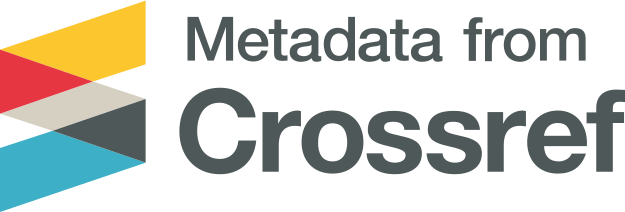Analisis Kebijakan dan Implementasi Perpajakan Wajib Pajak Orang Pribadi Pembuat Konten Online di Negara Amerika Serikat, Korea Selatan, Filipina, dan Indonesia
DOI:
https://doi.org/10.35838/jrap.2021.008.01.05Keywords:
Selebgrams, Youtubers, Bloggers, Policy, EvaluateAbstract
ABSTRACT
The income earned by online content creators (selebgrams, youtubers, and bloggers) is an object of Income Tax. The income of online content creators are potential taxes that are being unearthed by the DJP. This study aims to analyze tax policy for taxpayers of online content creators in the United States, South Korea, Philippines, and Indonesia, analyze potential tax revenues and evaluate the implementation of their tax obligations. This research uses descriptive and qualitative research. Data collection through field studies by conducting interviews, questionnaire, and literature studies. Based on the results of the study, each country studied imposed taxes on private residents, as well as non-residents. Every online content creator is asked to register to obtain a TIN, as well as NPWP in Indonesia. The difference is that online content creators must register their businesses, so that the tax authorities have a database.
ABSTRAK
Penghasilan yang diperoleh pembuat konten online (selebgrams, youtubers, dan bloggers) merupakan objek Pajak Penghasilan. Penghasilan pembuat konten online merupakan potensi pajak yang sedang digali oleh Direktorat Jenderal Pajak. Penelitian ini bertujuan menganalisis kebijakan perpajakan bagi wajib pajak orang pribadi pembuat konten online di negara Amerika Serikat, Korea Selatan, Filipina, dan Indonesia, menganalisis potensi penerimaan pajak dan mengevaluasi pelaksanaan kewajiban perpajakannya. Penelitian ini menggunakan penelitian deskriptif dan bersifat kualitatif. Pengumpulan data melalui studi lapangan dengan melakukan wawancara dan kuesioner terhadap wajib pajak pembuat konten online dan studi literatur. Berdasarkan hasil penelitian, setiap negara yang diteliti mengenakan pajak terhadap resident, maupun non resident. Setiap orang pribadi pembuat konten online diminta mendaftarkan diri agar memperoleh TIN, seperti halnya NPWP di Indonesia. Perbedaan Negara yang diteliti dengan Indonesia adalah pembuat konten online harus mendaftarkan usahanya, sehingga otoritas pajak memiliki database pembuat konten online.
Downloads
References
Accurate. (2020). Tajir Melipir! 10 Selebgram Terkaya di Indonesia Dengan penghasilan Ratusan Juta Per Bulan. https://accurate.partners/news/tajir-melipir-10-selebgram-terkaya-di-indonesia-dengan-penghasilan-ratusan-juta-per-bulan/. Diakses (pada tanggal 8 Oktober 2020).
Carolina, A., & Inayati, I. (2021). Analisis Strategi Pemerintah dalam Upaya Meningkatkan Kepatuhan Wajib Pajak Youtuber Di Indonesia. Syntax Literate; Jurnal Ilmiah Indonesia, 6(2), 533-549.
CNBC Indonesia. (2017). Miris! Ternyata Tax Ratio Indonesia Terendah di Asia Pasifik. https://www.cnbcindonesia.com/news/20190726094730-4-87743/miris-ternyata-tax-ratio-indonesia-terendah-di-asia-pasifik. Diakses (pada tanggal 12 Desember 2020)
Handayani, Septi., Faturokhman, Agus., Pratiwi, Umi. (2012). Faktor-Faktor Yang Mempengaruhi Kemauan Membayar Pajak Wajib Pajak Orang Pribadi Yang Melakukan Pekerjaan Bebas. Simposium Nasional Akuntansi XIV.
Hikmawati, Fenti. (2017). Metodologi Penelitian. Depok: PT. Raja Grafindo Persada.
Sekaran, U., & Bougie, R. (2016). Research Methods for Business a Skill Building Approach Seventh Edition. Chichester: John Wiley & Sons Ltd.
Socialblade. (2020). Top 250 Youtubers in Indonesia Sorted By Subscribers. https://socialblade.com/youtube/top/country/id/mostsubscribed. Diakses (pada tanggal 8 Oktober 2020).
Sugiyono. (2017). Metode Penelitian Bisnis: Pendekatan Kuantitatif, Kualitatif, Kombinasi, dan R&D. Bandung: Alfabeta.
Kompas. (2017). Menguak layar Bisnis Selebgram. https://vik.kompas.com/selebgram/. Diakes (pada tanggal 12 Desember 2020).
Kompas. (2017). Pengguna Internet Indonesia Nomor Enam Dunia. http://tekno.kompas.com/read/2014/11/24/07430087/Pengguna.Internet.Indonesia.Nomor.Enam.Dunia. Diakses (pada tanggal 12 Desember 2020).
Kompasiana. (2019). 10 Blog Indonesia Dengan Penghasilan Tertinggi. https://www.kompasiana.com/putrifatmala9949/5c9d71e03ba7f754f13c70e3/10-blog-indonesia-dengan-penghasilan-tertinggi#. Diakses (pada tanggal 8 Oktober 2020).
Lestari, Ainul., Nurmantu., Vikaliana. (2019). Analisis Pelaksanaan Pengawasan Pengenaan Pajak Penghasilan Youtubers Pada Direktorat Jenderal pajak Tahun 2018. Jurnal Reformasi Administrasi: Jurnal Ilmiah untuk Mewujudkan Masyarakat Madani 6(2): 155-162.
Lowry, S. (2019). Digital Services Taxes (DSTs): Policy and Economic Analysis. Congressional Research Service Report, 45532.
Mileros, Martin., lakemond, N., and Forchheimer (2019). Towards a Taxonomy of E-commerce: Characterizing Content Creator-Based Business Models. Technology Innovation Management Review, 9(10), 62-77.
Peraturan Direktorat Jenderal Pajak PER 17/PJ/2015 Tentang Norma Penghitungan Penghasilan Neto.
PWC. (2020). Tax Summaries. https://taxsummaries.pwc.com/united-states/individual/significant-developments. Diakses (pada tanggal 17 April 2020).
PWC. (2020). Tax Summaries. https://taxsummaries.pwc.com/republic-of-korea/individual/significant-developments. Diakses (pada tanggal 16 April 2020).
PWC. (2020). Tax Summaries. https://taxsummaries.pwc.com/philippines/individual/significant-developments. Diakses (pada tanggal 16 April 2020).
Sung, M. H., & Umar, W. (2020). A New Industry and Tax Base on Taxing Esports in Indonesia. Jurnal Media Hukum, 27(2), 147-165.
Tahar, Afrizal., Kartika Arnain., Rachman. (2014). Pengaruh Faktor Internal dan Eksternal Terhadap kepatuhan Wajib Pajak. Journal of Accounting and Investment 15(1):56-67.
Tahar, A., Rizkia, L. M., & Hariyanto, E. (2020). Taxing Celebrity Social Media Endorsements Income: A Preliminary Study of Instagram Celebrities. Journal of Accounting and Investment, 1(3), 602-621.
Undang-Undang Republik Indonesia Nomor 6 Tahun 1983 Tentang Ketentuan Umum dan Tata Cara Perpajakan Sebagaimana Telah Diubah Terakhir Dengan Undang-Undang Republik Indonesia Nomor 16 Tahun 2009. (Susunan Dalam Satu Naskah).
Downloads
Published
Issue
Section
License
Authors who publish with this journal agree to the following terms:
- Authors retain copyright and grant the journal right of first publication with the work simultaneously licensed under a Creative Commons Attribution-ShareAlike 4.0 International License that allows others to share the work with an acknowledgement of the works authorship and initial publication in this journal.
- Authors are able to enter into separate, additional contractual arrangements for the non-exclusive distribution of the journals published version of the work (e.g., post it to an institutional repository or publish it in a book), with an acknowledgement of its initial publication in this journal.
- Authors are permitted and encouraged to post their work online (e.g., in institutional repositories or on their website) prior to and during the submission process, as it can lead to productive exchanges, as well as earlier and greater citation of published work (See The Effect of Open Access).














